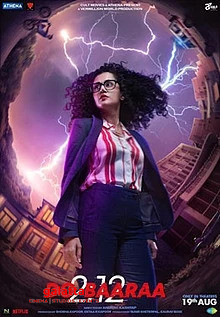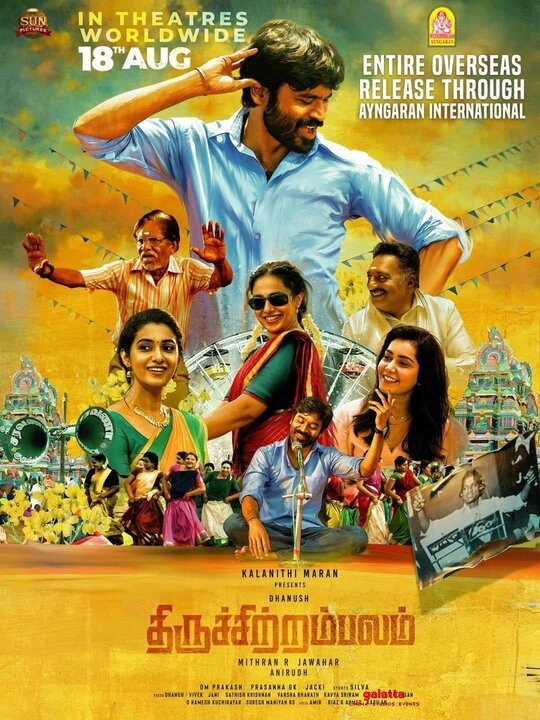
Theerppu Movie Cast & Crew
In quite a few ways, Theerppu, the new film by director Rathish Ambat and writer Muraly Gopy, feels like a sequel in spirit to their earlier work, Kammara Sambhavam. For one, there's the overall feel of wanting to stretch the limits of the material. Kammara Sambhavam was a meta-masala movie, where a real-life character who is thought to be evil (like MN Nambiar) is deified on screen as a god (like MGR). The subtext was about how history is nothing but a series of lies that become the "truth" over a period of time. The first half of the film was the actual history of the protagonist. The second half, where his life is made into a movie, is the lie that becomes history over time – because people die but movies (and other records) live forever. Theerppu is more of a genre movie: a home-invasion thriller. But again, the limits are stretched. It is also a revenge drama. (And like Kammara Sambhavam, it takes a really long time to get to the point.)
But the real similarity between the two films comes from this line in Kammara Sambhavam, which is spoken by a British-era character: "If we get freedom, people will fight against each other in the name of pork and beef." This line is the basis of Theerppu, which is set in today's times but also goes back to the years that follow the Babri Masjid incident: in the film, a structure belonging to a Muslim is demolished to make ways for another structure now belonging to a Hindu. And get his name: it's Ramkumar, and the man is often called Rama. His wife is named Maithili, which is another name for Sita. His watchman is called Pawanputra, which is Hanuman's name. And they all live in a property named Saket, which is another name for Ayodhya. The story is essentially about religion, or about people fighting "in the name of pork and beef".
The Rama of Theerppu is not a morally upright hero, and my reading of the film is that it is an attack on Hindutva. I say "my reading" because the entire film is built on an allegorical premise, and different people are bound to take away different things. In an early scene, as broken bits of statues of Ganesha are recovered from the sea, a character complains that this custom has spread to Kerala from Maharashtra, and is now spoiling the local ecosystem. Translation: relatively new Hindu rituals are being mainstreamed into Kerala, and this fact is underlined by the arrival of a right-wing politician named… Lakshman. Like in Kammara Sambhavam, "history" is being remade in front of our eyes. In a hundred years, Ganesh Chathurthi may become a very major festival in Kerala, too. Another point: the son of a Hindu priest bears the name Poatty. He spells as "Potty", which is, of course, associated with shit.
Everything is symbolic. The flashback, which involves a benevolent Muslim character played by Siddique, begins during the Eid season. The main attraction at a posh resort are artifacts from the Rani of Jhansi, Krishnadevaraya and Chandragupta Maurya. In other words, real history has been reduced to mere decoration, while alternate histories are being written as we speak. Underneath all these layers lies the story, which is about Rama confronting a ghost from the past – and what is history if not the ghost of the past! Prithviraj Sukumaran plays this ghost. His character's name is Abdullah Marakkar, and that surname lends a host of other associations and meanings to the movie. Prithiviraj is very good in a melodramatic and heroic role that he has to play almost entirely through his eyes. The other good performance comes from a very moving Siddique, who plays the "good Muslim" who has to face a lot of "bad Hindus". To balance things out, there's also an extremist Muslim character, who stays in the sidelines of the story.
The problem with Theerppu is that it is so overstuffed with all this symbolism that the main narrative, the main characters feel like afterthoughts retrofitted into an ideological template. The other actors are Indrajith Sukumaran, Isha Talwar, Vijay Babu, Saiju Kurup, and Hannah Reji Koshy. I would have liked to know more about a man's descent to insanity, or another man's feelings about a wife who is possibly cheating on him. Had these issues – which are particular to this story, and not about the world at large – been explored, we might have cared more about the ideological stances in the screenplay. Instead, we keep veering away to Gandhi, Covid, Syria, to men impersonating race-obsessed killers like a Hitler and Mussolini, to a tattoo that says "Carpe Diem", or seize the day… The big message is stated as a piece of dialogue: When you kill the powerless, they win the war with their own death. But as a film, the real message is this: Don't make the subtext the text. If we don't care about the story or the characters, it's unlikely we'll care about the message.
About Author

Baradwaj Rangan
National Award-winning film critic Baradwaj Rangan, former deputy editor of The Hindu and senior editor of Film Companion, has carved a niche for himself over the years as a powerful voice in cinema, especially the Tamil film industry, with his reviews of films. While he was pursuing his chemical engineering degree, he was fascinated with the writing and analysis of world cinema by American critics. Baradwaj completed his Master’s degree in Advertising and Public Relations through scholarship. His first review was for the Hindi film Dum, published on January 30, 2003, in the Madras Plus supplement of The Economic Times. He then started critiquing Tamil films in 2014 and did a review on the film Subramaniapuram, while also debuting as a writer in the unreleased rom-com Kadhal 2 Kalyanam. Furthermore, Baradwaj has authored two books - Conversations with Mani Ratnam, 2012, and A Journey Through Indian Cinema, 2014. In 2017, he joined Film Companion South and continued to show his prowess in critiquing for the next five years garnering a wide viewership and a fan following of his own before announcing to be a part of Galatta Media in March 2022.


















